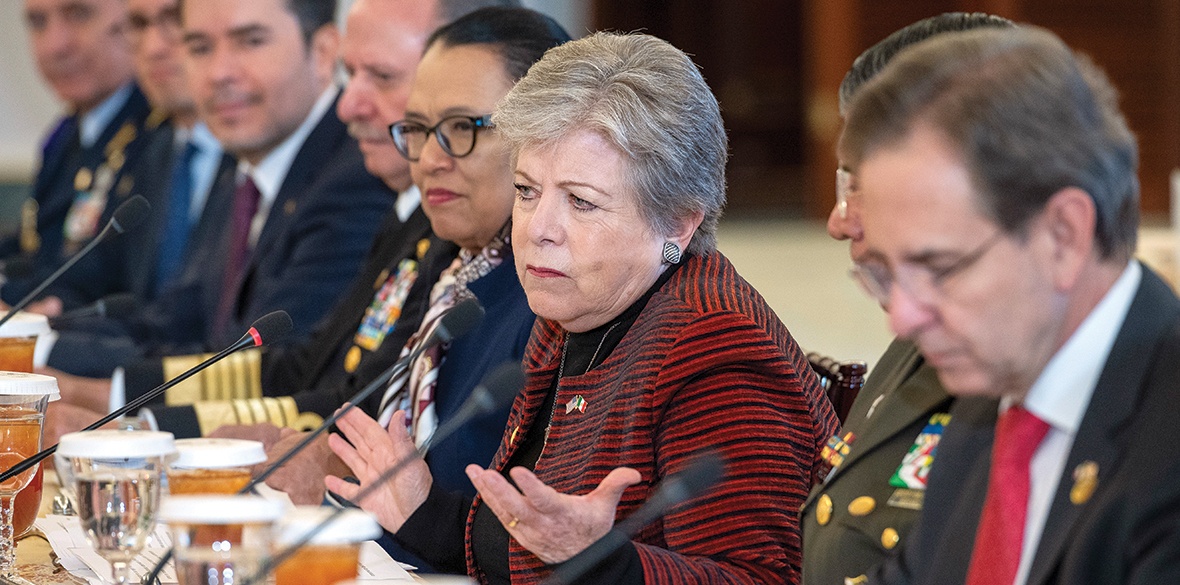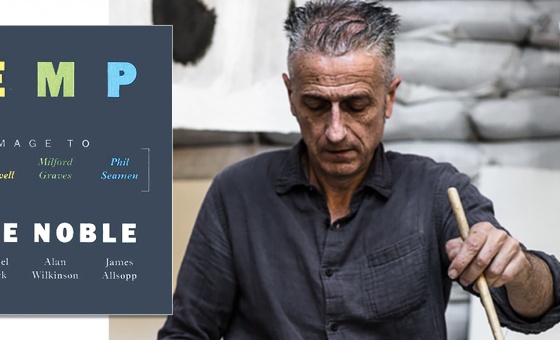This is the last article you can read this month
You can read more article this month
You can read more articles this month
Sorry your limit is up for this month
Reset on:
Please help support the Morning Star by subscribing here
DESPITE the alarming advance of the far right in Argentina and Ecuador and its continued stranglehold on Peru, Mexico’s progressive stance grows stronger as President Andres Manuel Lopez Obrador (Amlo) approaches the end of his six-year term and left presidential candidate Claudia Sheinbaum opens up a 30-point lead in the polls for the June 2 elections.
The right is divided and disorientated: there is no shortage of would-be Javier Mileis in Mexico, spouting extremist rhetoric, lies and insults, but their appeal is limited to the hard-core conservative vote. Their candidate, Xochitl Galvez, although a woman of popular origin, is hampered by her long career in the right-wing PAN (National Action Party; Partido Accion Nacional) and her repeated inconsistencies, alternating between radicalism and conciliation.
Denunciations of Amlo for “dictatorship” and “corruption” just arouse bemused contempt in most people who see the first honest and competent government in generations. With just over four months to the elections and eight months till the architect of this extraordinary positive transformation of national life retires from politics for good (Amlo insists that on October 1 he will retire to his home in Palenque and avoid political life completely), the idea of a return to the avarice, arrogance and hypocrisy of the old regime is inconceivable.
This of course doesn’t mean that all potential threats have disappeared: possible internal divisions or betrayal within the governing coalition could emerge as time goes on, and the more perceptive opposition commentators are banking on a conservative revival in the medium term. The only guarantee lies in popular mobilisation and consistent leadership.
For now the president continues his intensive schedule, touring the country to inaugurate public works and supervise the implementation of social programmes of all kinds. He frequently does this at weekends, working seven days a week and being greeted with enthusiasm wherever he goes. Railways, roads, airports, water supply and irrigation works, hospitals, schools, branches of the public Welfare Bank, parks and nature reserves: public investment for sustainable development and welfare.
In social programmes also the achievements are undeniable: universal public pensions, disability benefit, educational grants and scholarships at all levels, apprenticeships, grants for small business, the “Sowing Life” agroforestry scheme aiding peasant farmers, and many more. Real increases in the minimum wage, an end to abusive outsourcing, free union elections.
Most important is the government’s economic success: low inflation and economic growth for the last three years, and appreciation of the peso against the US dollar. This success is linked to what is perhaps Amlo’s most remarkable achievement: the restoration of Mexico’s energy sovereignty, with national public ownership or control of petroleum, gas, electricity and lithium.
Together with other measures protecting labour rights and the participation of small and medium enterprises, this means that the US-Canada-Mexico agreement is no longer really one of “free” trade but managed trade, and to have obtained acceptance of this from both the Trump and Biden administrations is extraordinary.
This is where the Mexican opposition’s failure is most blatant: they constantly try to deny these achievements, and the falsehood and absurdity of their claims are clear for all to see.
More serious in practice than opposition rhetoric and propaganda is the continued sabotage (there is no other way to describe it) by most of the country’s judiciary of Amlo’s government. Judges repeatedly use legal technicalities to grant amparos (stays of execution) against the implementation of progressive policies, and authorise the release of corrupt officials detained on serious peculation or human rights charges.
This goes all the way up to the Supreme Court (SCJN); its judges are extremely unpopular for their right-wing politicisation of justice, and also for their barefaced corruption (they insist, against the law, on paying themselves astronomical salaries and benefits, several times more than the president himself). Amlo been denouncing this for years, but has avoided taking direct action out of respect for the division of powers; to change the situation would require a constitutional amendment, which requires a two-thirds majority in both houses of congress.
For this reason Amlo has been insisting, time and again, that in the June elections it is necessary not only for his Morena party and its allies to win the presidency and a congressional majority, but to win a two-thirds super-majority. With the polls as they stand, this may be possible, but it won’t be easy. Amlo has prepared a broad package of reforms he will present on February 5 (Constitution Day); since the new congress to be elected in June takes office on September 1, a month before the new president, these reforms could be passed then.
What also has to be mentioned is Amlo’s foreign policy: the emphasis on Latin American integration (with Mexico playing a key role in the revival of Celac, the Community of Latin American States); the steadfast support for Cuba, with constant denunciation of the blockade and practical aid to Cuba at key moments; condemnation of all sanctions and interventionism; condemnation of the coups in Bolivia in 2019 (with the rescue of Evo Morales) and Peru in 2022; solidarity with progressive governments in Colombia, Brazil, Honduras and Chile, and now Guatemala.
On Palestine, Mexico has from the beginning called for a ceasefire, and has now (with Chile) called for investigation by the International Criminal Court.
With relation to the US, bearing in mind its very difficult situation with a 3,200km border and close economic integration, Mexico has shown remarkable diplomatic skill, obliging the Biden administration to open legal paths for migration for several Central American and Caribbean countries, to recognise the need to work collectively with those countries and (in principle) to provide development aid, and to take action on the illegal supply of lethal weapons by US arms manufacturers.
Finally, Claudia Sheinbaum is an ideal candidate to continue the Fourth Transformation: a woman with a firm left-wing record, an outstanding metro mayor of the capital, loyal to Amlo for over 20 years, but with her own ideas relating to her academic training in environmental sciences, she was chosen in a democratic internal process in Morena and the coalition, and has since been constantly touring the country in dialogue with the people to bolster support for the Transformation.
David L Raby is a retired academic and journalist on Latin America and co-ordinator of the Mexico Solidarity Forum (e-voice.org.uk/mexicosolidarity-2, [email protected]), and on X @DLRaby.








